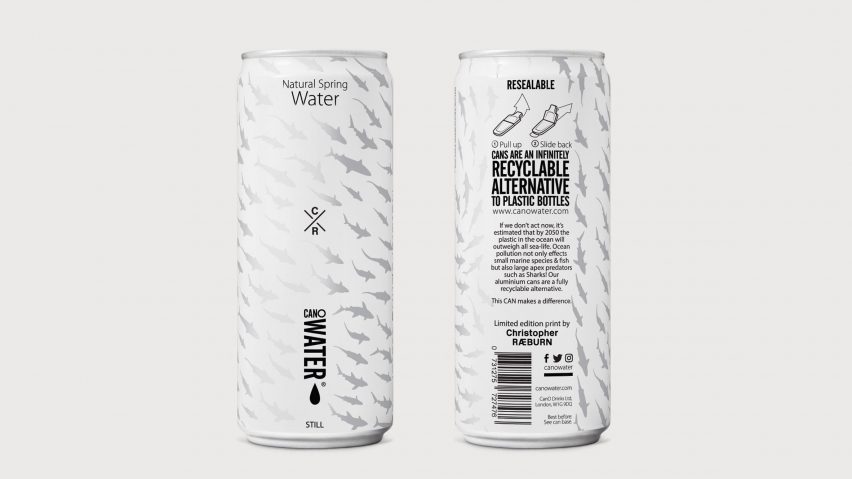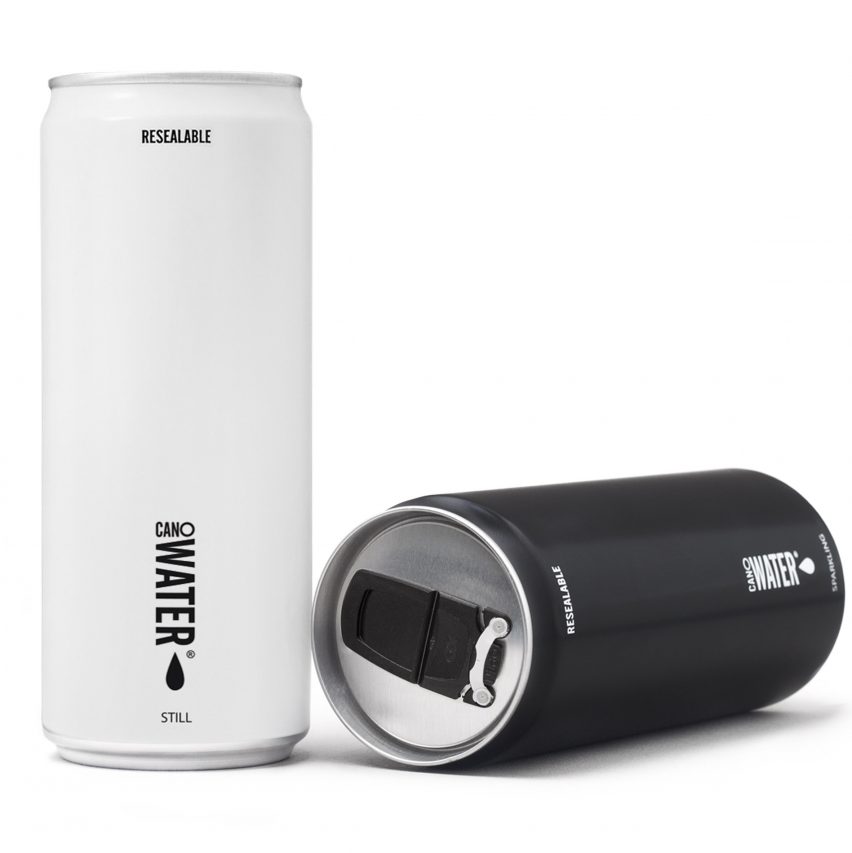
London Zoo swaps plastic water bottles for cans designed by Christopher Raeburn
Canowater has revealed the latest addition to its range of environmentally friendly water cans – a special-edition container created by fashion designer Christopher Raeburn for London Zoo.
A UK-based company, Canowater was established in 2015 with the aim of creating a "sustainable alternative to single-use plastic bottles". It instead packages drinking water inside aluminium cans.
"Aluminium has the highest recycling rate of any drink out there," said company co-founder Josh White. "Recycle a can and it could be back on the shelf in as little as six weeks".
For this latest project, the company worked alongside Zoological Society of London (ZSL) to design a replacement for the plastic water bottles sold at both London Zoo and Whipsnade Zoo.
Canowater cans feature a resealable lid
As of tomorrow, 22 March 2018, ZSL will only sell water inside the Canowater containers.
These special-edition cans will be adorned with a shark motif designed by Raeburn – a sustainability champion who has previously launched clothing made from waste fabrics.
Each can also features a resealable lid, so it can be kept in a bag just like a water bottle.
According to Canowater, the aluminium protects the water from elements that may make it unsafe to drink.
"We use aluminium cans which protect the water from light, oxygen and other elements that can affect taste and water safety," White said.
Cornish town also ditches water bottles
Canowater sells plain versions of its cans through a range of UK retailers, including Whole Foods, Selfridges and Ocado, and at well-known destinations including Buckingham Palace.
On a wider scale, the company has also teamed up with Penzance, a town in Cornwall, to help every restaurant, hotel and shop ditch plastic bottles.

The campaign is led by an organisation called Surfers Against Sewage, and has quickly spread across the entire town.
"Residents of Penzance are so committed to ditching plastic bottles, we've had to stock aluminium alternatives," said Roger Rossignol, a local supplier.
"We found CanO Water and have sold about 7,000 cans already. The demand comes straight from the public, so we've had to adapt what we buy," he added. "Penzance is taking the campaign so seriously, especially the student population. People are out on the beaches clearing up plastic waste but also doing simple swaps at home."
Plastic pollution is a global problem
Canowater's wider aim is make a significant reduction in the amount of plastic waste that infiltrates the natural landscape.
Scientists have warned that, unless things change soon, the amount of plastic in landfill or in the oceans will exceed 12 billion tons by 2050.
According to research conducted by Canowater, UK residents use 38.5 million plastic bottles every day, and only five per cent of these get recycled. They claim that around 16 million bottles end up in the ocean or landfill every day.
Other companies that have committed to reduce their plastic waste include Coca-Cola, L'Oréal, Evian and Walmart, who are all working with the Ellen MacArthur Foundation, as part of its drive to accelerate a transition to a circular economy.
PG Tips recently announced it is launching a new tea bag made from 100 per cent biodegradable plant-based materials, while Lego has committed to creating bricks from a sugar cane-based formula.
Also, a new generation of sustainably minded designers is pioneering ways of using recycled plastic as a raw material, as it is often free to source, and can be produced in a wide range of colours, patterns and textures.